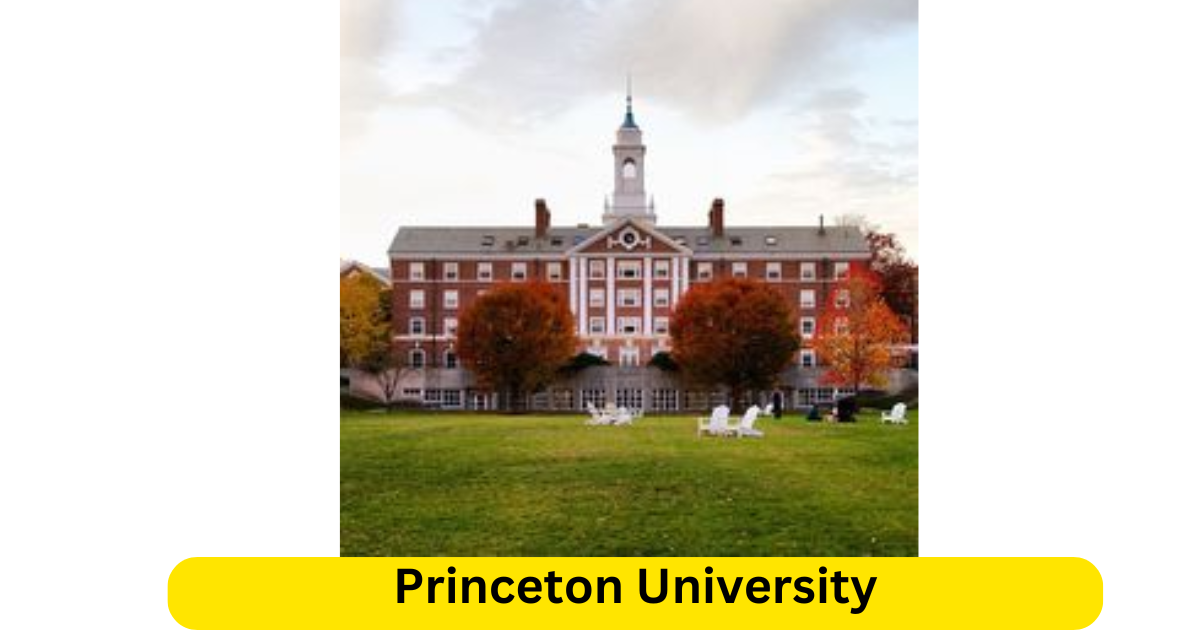Princeton University: A Legacy of Academic Excellence and Innovation
Princeton University stands as a pillar of academic prestige and intellectual rigor. Established in 1746, it is one of the oldest and most esteemed institutions of higher learning in the United States. This article delves into the history, academic programs, notable alumni, and the overarching impact of Princeton University on education and society.
A Brief History of Princeton University
Founded as the College of New Jersey in 1746, Princeton University has a rich history steeped in tradition and excellence. Initially located in Elizabeth, New Jersey, the college moved to Newark in 1747 before settling in its permanent home in Princeton in 1756. The institution was renamed Princeton University in 1896 to reflect its expanded academic mission.
Key Milestones in Princeton’s History
- 1746: The College of New Jersey is founded by New Light Presbyterians.
- 1756: The college relocates to Princeton, New Jersey.
- 1896: The institution is renamed Princeton University.
- 1905: The Princeton University Graduate School is established.
- 2001: Shirley M. Tilghman becomes Princeton’s first female president.
Academic Excellence
Princeton University is renowned for its commitment to undergraduate education, distinguished faculty, and world-class research facilities. The university offers a wide array of programs across various disciplines, fostering a collaborative and intellectually stimulating environment.
Undergraduate Education
Princeton’s undergraduate program emphasizes a liberal arts education, encouraging students to explore a broad range of disciplines before specializing. Key features of the undergraduate experience include:
- Small Class Sizes: Princeton maintains a low student-to-faculty ratio, ensuring personalized attention and close interactions with professors.
- Independent Work: All students are required to complete a senior thesis or a significant independent project, promoting original research and critical thinking.
- Interdisciplinary Studies: Students are encouraged to pursue interdisciplinary programs, combining insights from multiple fields of study.
Graduate and Professional Education
Princeton’s graduate programs are equally prestigious, offering advanced degrees in various disciplines. Notable programs include:
- Princeton School of Public and International Affairs (SPIA): Offering programs in public policy, international affairs, and domestic and global governance.
- Princeton University Graduate School: Providing advanced study and research opportunities in the humanities, social sciences, natural sciences, and engineering.
- Princeton Theological Seminary: One of the leading institutions for theological education and research.
Research and Innovation
Princeton University is at the forefront of groundbreaking research and innovation. The university’s numerous research centers and institutes contribute significantly to advancements in various fields. Key research areas include:
- Physics and Astronomy: Home to pioneering research in theoretical and experimental physics, including the Princeton Plasma Physics Laboratory.
- Computer Science: Advancing knowledge in artificial intelligence, cybersecurity, and computational theory.
- Environmental Studies: Addressing critical issues related to climate change, sustainability, and environmental policy through interdisciplinary research.
Notable Alumni
Princeton University has produced a remarkable array of alumni who have made significant contributions to society in various fields. Some of the most distinguished include:
- Woodrow Wilson: 28th President of the United States and Nobel Peace Prize laureate.
- Jeff Bezos: Founder and former CEO of Amazon, and one of the world’s most influential business leaders.
- Michelle Obama: Former First Lady of the United States and advocate for education, health, and veterans.
Global Impact and Influence
Princeton’s influence extends far beyond its picturesque campus. The university plays a pivotal role in shaping global education, policy, and innovation through its collaborative efforts and outreach programs.
Collaborations and Partnerships
Princeton actively collaborates with institutions worldwide to address global challenges and promote academic exchange. These partnerships include joint research initiatives, exchange programs, and international conferences.
Public Service and Outreach
Princeton is deeply committed to public service and community engagement. The university’s various outreach programs and initiatives aim to make a positive impact on society. Notable examples include:
- Princeton in Africa, Asia, and Latin America: Programs that place recent graduates in service fellowships across these continents, promoting cross-cultural understanding and development.
- Princeton University Preparatory Program (PUPP): Providing academic and cultural enrichment for high-achieving, low-income high school students.
Admission Process and Requirements
Gaining admission to Princeton University is highly competitive, with an acceptance rate typically below 6%. Prospective students must demonstrate exceptional academic achievements, strong extracurricular involvement, and a compelling personal narrative.
Key Admission Requirements
- High School Transcript: Reflecting academic excellence and a rigorous course load.
- Standardized Test Scores: While Princeton has adopted a test-optional policy for recent admissions cycles, strong SAT or ACT scores can enhance an application.
- Extracurricular Activities: Demonstrating leadership, community service, and other significant involvements.
- Personal Essays: Offering insights into the applicant’s personality, values, and aspirations.
- Letters of Recommendation: Providing valuable perspectives from teachers, counselors, or mentors.
Conclusion
Princeton University stands as a beacon of academic excellence, innovation, and leadership. Its rich history, distinguished academic programs, and influential alumni make it a cornerstone of global education. As Princeton continues to evolve, its commitment to shaping a better future through education and research remains unwavering.
